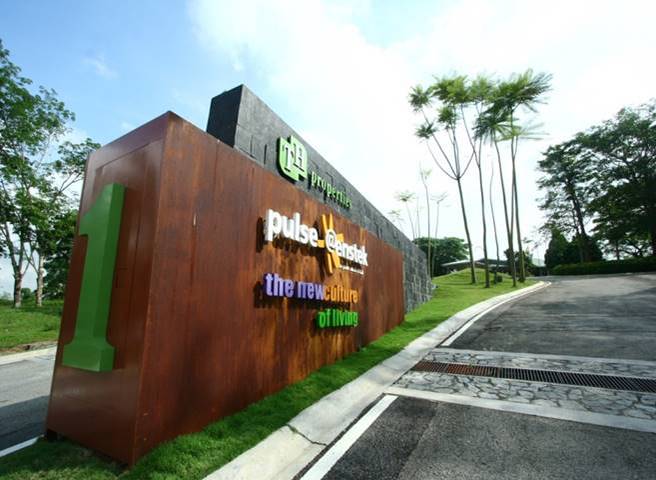Running a halal business requires a special set of skills and materials, some of which differ drastically from those employed by conventional competitors in the same industry. Firms that produce halal products can have difficulty resolving supply and other logistical problems on their own. To create a friendly environment where producers of halal goods can benefit from being around other companies with similar priorities, the Halal Development Corp. (HDC) certifies halal industrial parks to encourage the development of this growing sector.
There are currently 14 of these Halmas Halal Parks in Malaysia, encompassing 200,000 acres of land, with 70,000 acres still available for new investors or manufactures that are home to companies from a wide range of industries, including food, pharmaceuticals and cosmetics. Investors in halal parks receive generous tax incentives, as well as other benefits. These are extended not only to producers of halal products, but also the operators of halal parks and firms that provide logistical support to the businesses operating in the parks. Among the tax benefits, businesses can receive 100 percent income tax exemption on qualifying capital expenditure for as long as 10 years. The operators of halal parks must comply with strict requirements laid out by the HDC aimed at ensuring quality and transparency.
Concentrating halal businesses in industrial hubs has numerous advantages, foremost being that economies of scale provide easier and more affordable access to halal raw materials, which can be difficult to source for individual companies or new businesses. The accumulated knowledge and networks of connections found in a halal park help ensure supply and other issues can be solved more easily. These parks also facilitate the flow of capital, as investors can explore a wide range of opportunities in a single convenient location. Investors will find halal parks offering a flexible environment that often allows some companies to be eligible for 100 percent foreign ownership, the freedom to borrow from foreign banks and the possibility of bringing in overseas workers.
So far more than 60 multinational corporations and over 300 Malaysian enterprises have facilities in halal parks. Major Japanese companies with operations in halal hubs include the Malaysian subsidiaries of Ajinomoto Co. and Kewpie Corp., which joined a halal park in 2011. Among the global brands that have chosen to take advantage of the benefits of halal park participation are Kellogg Co., Cargill Inc. and Coca-Cola Co. While food and beverage makers have the largest presence in halal parks, there is incredible variety in the companies representing this sector, which range from makers of fruit juice and instant noodles to sugar refineries and flour mills. Non-food industries that have found opportunities in halal parks include pharmaceuticals, nutritional supplements, leather products, perfumes, toiletries and food packaging. Foreign companies that are unfamiliar with halal practices can send their employees to HDC training sessions at its facility near Kuala Lumpur, or arrange for on-site instruction tailored to their needs.
Malaysia is a global trade hub that is strategically situated amid the large Muslim markets of the Middle East, India and Indonesia. The country also offers a welcoming environment for the halal industry. In addition to its large Muslim population, Malaysia’s political stability, pro-business government and skilled workforce combine to provide a solid foundation for building a halal business that can succeed in Southeast Asia and all over the world. Malaysia is a prime destination for halal investment and ideal as a gateway to the Association of Southeast Asian Nations region and the Middle East with an estimated halal market size worth $1 trillion.
The market for halal products is expected to grow rapidly in the coming years. Businesses that position themselves early by investing in employee training and putting down roots in friendly halal parks will be in a better position to take advantage of this growth. There are no certainties in the business world, but companies that surround themselves with supportive infrastructure and networks of other halal-orientated firms are equipping themselves to skillfully navigate whatever the future may bring.
Sources: The Japan Times



